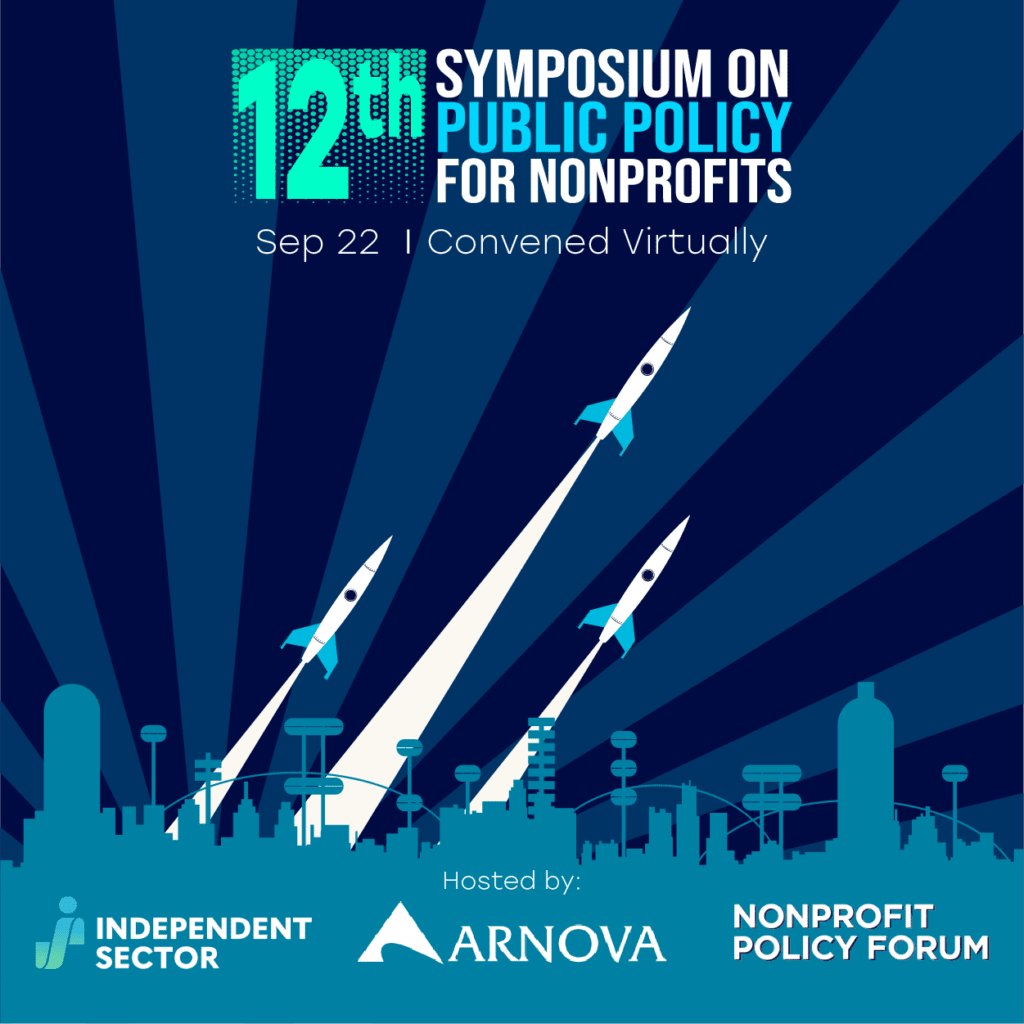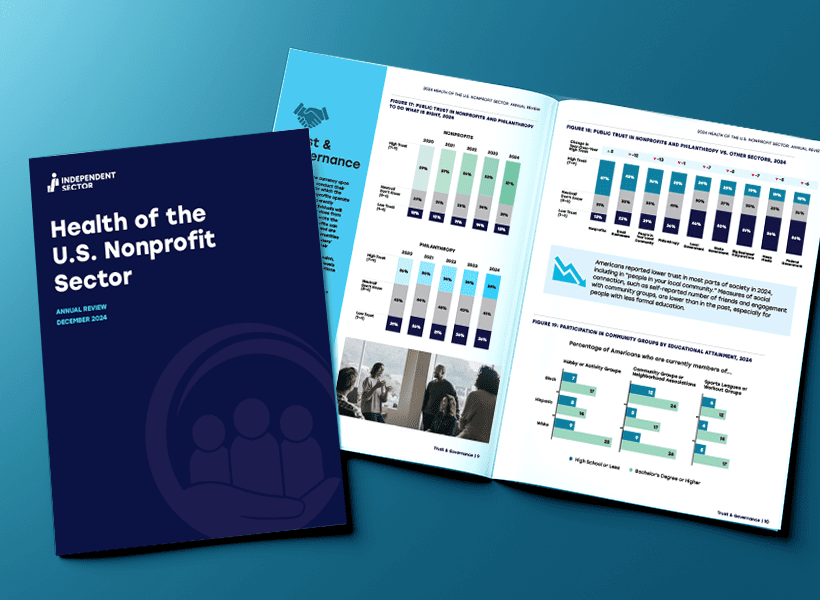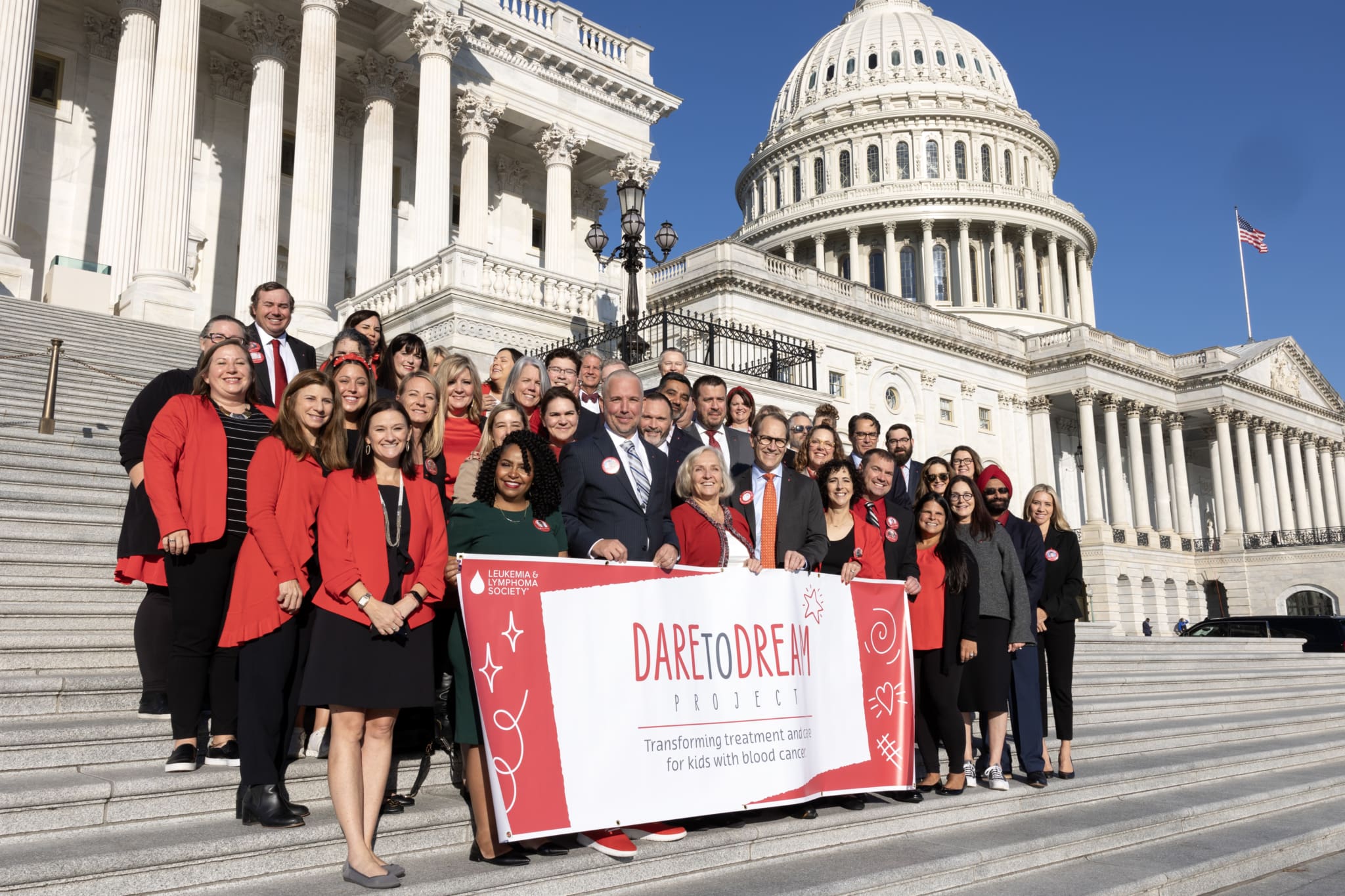Practitioners and academics: Set your phasers to stun and submit a proposal by April 14 for the 12th annual Symposium on Public Policy for Nonprofits — co-hosted by Independent Sector, the Association for Research on Nonprofit Organizations and Voluntary Action (ARNOVA), and Nonprofit Policy Forum. This year’s symposium theme, “To 2024 and Beyond: Public Policy Recommendations for the Nonprofit Sector and Philanthropy,” will focus on public policies that strengthen the nonprofit sector and philanthropy.
Nonprofits play an important role in our economy and are essential to building a healthy, equitable society where everyone can thrive. Our sector is the third largest private employer in the U.S. economy and grows jobs four times faster than for-profit organizations. It contributed $1.5 trillion to the economy in the third quarter of 2022, continuing a trend in growth of the gross value added by nonprofits exceeding the Gross Domestic Product (GDP). With nonprofits being among the most trusted institutions in the country, it’s not a surprise that the government relies on them to lift local economies and deliver government programs. Nonprofits also boost civic engagement and promote democracy by effectively reaching voters in underrepresented communities, including people of color, low-income earners, and young voters. Voters contacted by nonprofits turn out at rates 3 percentage points higher than comparable voters. The contributions of the nonprofit sector and philanthropy to our communities are clear.
While this isn’t an intergalactic emergency, the nonprofit sector and philanthropy are facing very real challenges. In 2022, approximately two-thirds (64.4%) of nonprofits reported an increased demand for services and 28.7% reported operating with fewer staff and less funding than prior to the pandemic. While the overall sector recovered from COVID-related job losses at the end of 2022, the recovery is uneven — the arts, grantmaking, and civic and professional subsectors continue to lag their pre-pandemic levels of employment. Recent research reports that women, who make up approximately two-thirds (64.4%) of the nonprofit workforce, are experiencing disproportionate challenges returning to the workforce. On top of all that, the number of unique volunteers declined 19% from 2019 to 2021 and 46.8% of CEOs say recruiting sufficient volunteers is a big problem for their organization.
The workforce isn’t the only area of concern. In the third quarter of 2022, the number of donors declined 7%, continuing a 10+ year downward trend observed prior to the pandemic. Additionally, over half (53%) of Americans believe giving directly to causes or individuals makes a bigger impact than giving through a nonprofit. While nonprofits are among the most trusted institutions, in 2022 56% of the public trusted nonprofits to do what is right, a three-percentage point decrease from 2020. The sector is facing systemic challenges that can be improved through public policy.
In order to enact public policies that increase the health of the nonprofit sector and philanthropy (and defeat the evil Emperor Zurg), policymakers must first hear from nonprofit leaders and researchers about nonprofit and community needs and the policies that will address these needs. One of the best opportunities to educate policymakers is during campaign season when candidates are out in communities, visiting nonprofits, talking to constituents, and receiving ideas from researchers. As we look ahead to the 2024 election cycle, what public policies should be considered by policymakers, Star Command, and others who care about the important role these institutions play in our society?
We’re looking to you, the nonprofit leaders, researchers, and community members who have the deepest understanding of the issues facing the sector and your communities. We encourage practitioners, academics, and space rangers to submit research or practice-informed recommendations of public policies that strengthen the nonprofit sector and philanthropy. Policy recommendations may relate to public policy at the federal, state, or local levels and focus on the nonprofit sector and/or philanthropy as a whole, rather than a particular subfield. View the full RFP and submit proposals on the ARNOVA website by April 14, 2023.
Emily Rogers is Independent Sector Manager, Policy Research.



